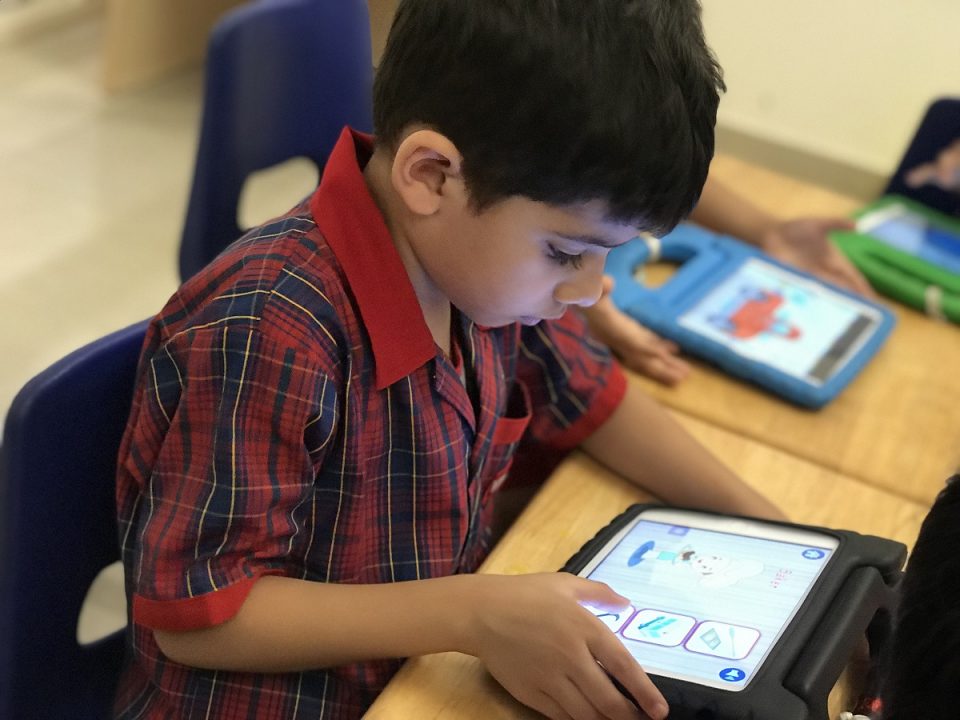- Call/Whatsapp: +91-9372801276
- Mail us: info@viverointernational.com
The digital world is growing and changing very fast. With tech companies releasing products so rapidly, there is little time for anyone to stop and think of issues that might arise with their use. Too often when we purchase a new digital technology, we only look at all the bells and whistles and don’t think of the consequences they may have on our children. This is where the importance of ‘digital citizenship’ steps in.
Being a digital citizen implies that we are accountable for our technological advancement. This also means that we need to be responsible for the ways in which we communicate online.
As our pre-schoolers embark on this virtual learning medium, it is essential that they receive the necessary guidance from parents and educators on how to safely and successfully navigate through technology. Online safety and etiquette begin at home, continues through the classroom and extends into the homes of friends and family.

Treat media as you would any other environment in your child’s life. The same parenting guidelines apply in both real and virtual environments. Set limits; children need and expect them. Know your child’s friends, both online and off. Know what platforms, software, and apps your children are using, what sites they are visiting on the web, and what they are doing online.
Following the ‘Do as I do’ rule: Children are imitators. They do what they see and incorporate it substantially faster. Rather than telling them what to do, demonstrate the correct way. Turn off your mobile phones and electronic devices during dinner or while participating in family activities. Children will feel more compelled to follow rules if everyone in the family abides by them.
Pay close attention. Know where your children go online and what they’re doing there. Impart your values. Cheating, lying and being cruel online are not acceptable. The concepts of right and wrong should extend to a child’s online and mobile life. This should be done by openly communicating with children.
Establish limits. Setting fixed screen timelines for the family with essential agreements in place helps digital regulation at home. Set clear time or texting limits and time of day restrictions so children know when it’s appropriate to use mobile phones or technology.
Encourage balance. Support their interest in offline activities that don’t require a gadget or mobile device. This will enable the child to maintain a balance between the real and digital world.
Setting accountability. Using digital media is a privilege. Set clear understandings of rights and responsibilities for each family member to explain to them that all rights come with responsibility and accountability. Consider asking your child to complete more essential tasks, like chores or family time, before letting him get on the internet or text with friends.
Explain what’s at stake. Remind little ones that what they do today can be used against them tomorrow, especially when their actions are online. Do your homework. Research the websites your children visit, the songs they download, etc. Stay tuned into how and why they’re using technology so they don’t have free reign over the net.
Know the value of face-to-face communication. Very young children learn best through two-way communication. Engaging in back-and-forth “talk time” is critical for language development. Conversations can be face-to-face or, if necessary, by video chat with a traveling parent or far-away grandparent. Research has shown that it’s that “back-and-forth conversation” that improves language skills—much more so than “passive” listening or one-way interaction with a screen.
Remember: Children will be children. They will make mistakes using media. Try to handle errors with empathy and turn a mistake into a teachable moment. Parents must observe their child’s behaviours carefully and, if needed, enlist supportive professional help.
Media and digital devices are an integral part of our world today. The benefits of these devices, if used moderately and appropriately, can be great. However, research has shown that face-to-face time with family, friends, and teachers plays a pivotal and even more important role in promoting children’s learning and healthy development. Keep the face-to-face up front, and don’t let it get lost behind a stream of media and tech.
